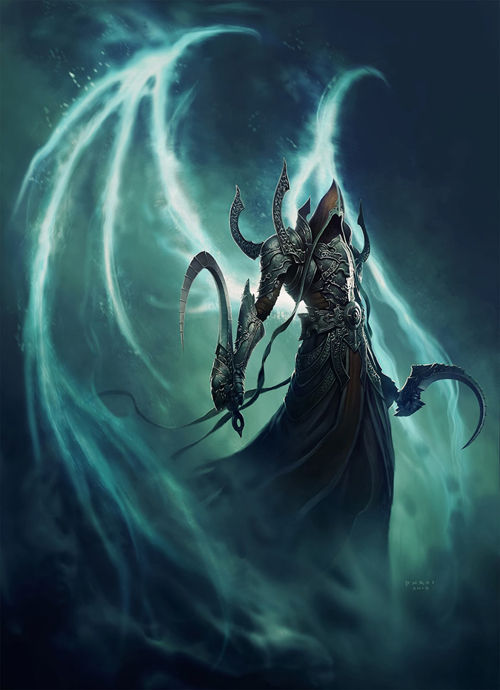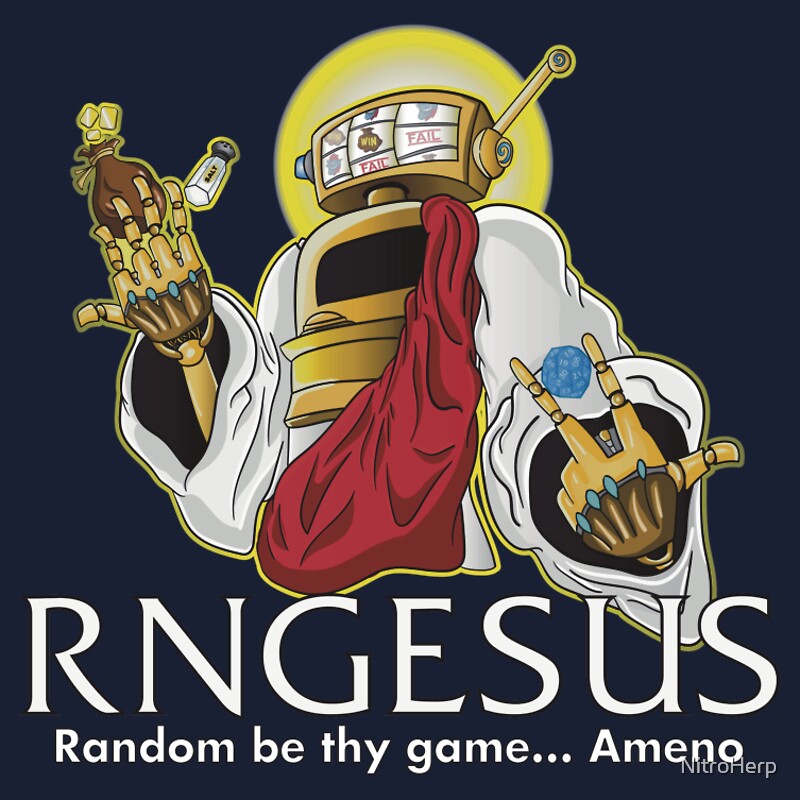Welcome to my first ever game on these forums! In Ascendant you will play as gods of a world of your own creation, raising it above its meager foundations of stone and water by populating it with races and civilizations of your own intelligent design. Wage war against your rivals in a grand game of chess with your mortal creations as the pieces, or lead your children into a golden age of prosperity and progress that eclipses their competitors. Indulge in your creativity as you shape the land of this world - the earth is your clay to sculpt from and the water your paintbrush. Send plagues to decimate cities and armies, or create an avatar to lead your civilization to victory. The possibilities are endless.
Getting Started - Anyone is welcome at any time!
Everyone will start the game as a deity of their choice, with races and civilizations coming later. These are the kinds of sign-ups I expect for now:
Deity
Name: Whatever you wish.
Dominion: What sphere of nature does your god hold dominion over? Mountains? Fire? Destruction? War? Whichever you choose will provide a bonus depending on your orders.
Bio: Here you can describe your god’s history and personality, giving us some insight into his or her mind. This part is optional.
Race
Name: Whatever you wish.
Appearance: What does your species look like?
Size: How large is an average member of your species?
Lifespan: How long are their lives? I will accept long-lived, but not immortal.
Senses: How do they absorb information from their environments?
Diet type: Simply put, what do they eat?
Habitat: What habitats are they best suited towards?
Reproduction: What are their reproductive procedures? How many offspring do they have?
Society: How do members of your race interact with each other?
Positive and Negative Traits: You can have a max of two each, and they should be about equivalent. Depending on what you choose, these traits can affect the outcome of your orders relating to your race and/or civilization.
Course of the Game
The game is divided into three distinct stages, called Ages - these, respectively, are the shaping of the world, the creation of races, and the development of civilizations. The first two Ages take place in rounds. Each player gets a turn during the round. At the beginning of each turn I will roll two twelve-sided dice which will form the total of their Divine Power, which players will use in Divine Orders. The Third Age has longer rounds to allow room for more detailed, thoughtful playing - not to mention glorious IC, of course - and implements private orders for civilizations as well.
First Age - Creation of the World
The game begins in the First Age, which is focused on geography. The world map starts basically blank - a barren, flat continent - and during this age the cost in divine power is least for geographic features. During this Age players are free to create as many mountains, islands, forests and lakes as they can afford (provided they aren’t totally implausible), which I will add to the map accordingly. By contrast, the creation of races is extremely difficult at this early stage, nor is it expected.
Creation of geographic features is limited by the amount of Divine Power you have in any given round. Each round in the First Age is roughly equal to 500 years, and there will be a minimum of five rounds (I will add more if I feel it necessary). It is important to note that throughout the game, players are by no means required to spend the divine power that they earn in a round during that round - one can instead choose to save it for later use. There will be a cap (at least in the early stages) so try to do this sparingly. Those I feel who abuse it shall be smited.
Second Age - Creation of the Races
The Second Age is focused on the creation of the various races that will inhabit the world you have shaped. There is relatively little limit to what kind of races can be made, so feel free to take inspiration from classical fantasy (men, elves, dwarves, etc.) or create an original race entirely of your own design. During the Second Age races are easy to create, while geographic features become more costly. Like the First, the Second Age is also divided into short rounds, each roughly equal to 100 years. The Second Age will also be shorter than its predecessor, but can be extended if needed.
Third Age - Creation of Civilizations
In the Third Age the shaping of land and the creation of races become prohibitively expensive - this is the age of politics, war, and technological advancement in which players will create a civilization from the races they have made and interact with each other in the world they have built. The Third Age is intended to be the meat of the game, and as such it introduces private orders and longer turns in lieu of short rounds conducted in-thread. You can still use Divine Power but it is now generated by the worship of mortals, and as things are more expensive it will take longer to save up for major endeavors. Instead you will mainly be using Civilization Orders to exert influence on your civilization, the success of which will be determined through dice-rolling.
Orders
Divine Orders (Public)
Theoretically you can send as many Divine Orders you want a turn as long as you have the Divine Power to afford them. The kind of things you can order are extremely broad, consisting of most anything you can think of - create forests and mountain chains, blight the land with desert, create a race of sentient turtles or appear on the field of battle to attack an enemy army. It is recommended you check the Divine Power Index to gauge what you can and cannot afford or perhaps to seek inspiration, and if you are still unsure feel free to ask me.
Civilization Orders (Private - max of 3)
Each turn you can send up to 3 orders for your civilization that contain commands for your people to carry out. Whether or not these orders are relayed to your civilization as a whole or to a single individual (or group of individuals, such as a church) is dependent on you, the player. The former can result in more minor, subtle results but on a wider scale, while the latter can result in greater changes but perhaps with a narrower scope or greater degree of variability. The outcome of these orders (i.e. the degree of success or failure) will largely depend on RNGesus.
Getting Started - Anyone is welcome at any time!
Everyone will start the game as a deity of their choice, with races and civilizations coming later. These are the kinds of sign-ups I expect for now:
Deity
Name: Whatever you wish.
Dominion: What sphere of nature does your god hold dominion over? Mountains? Fire? Destruction? War? Whichever you choose will provide a bonus depending on your orders.
Bio: Here you can describe your god’s history and personality, giving us some insight into his or her mind. This part is optional.
Race
Name: Whatever you wish.
Appearance: What does your species look like?
Size: How large is an average member of your species?
Lifespan: How long are their lives? I will accept long-lived, but not immortal.
Senses: How do they absorb information from their environments?
Diet type: Simply put, what do they eat?
Habitat: What habitats are they best suited towards?
Reproduction: What are their reproductive procedures? How many offspring do they have?
Society: How do members of your race interact with each other?
Positive and Negative Traits: You can have a max of two each, and they should be about equivalent. Depending on what you choose, these traits can affect the outcome of your orders relating to your race and/or civilization.
Course of the Game
The game is divided into three distinct stages, called Ages - these, respectively, are the shaping of the world, the creation of races, and the development of civilizations. The first two Ages take place in rounds. Each player gets a turn during the round. At the beginning of each turn I will roll two twelve-sided dice which will form the total of their Divine Power, which players will use in Divine Orders. The Third Age has longer rounds to allow room for more detailed, thoughtful playing - not to mention glorious IC, of course - and implements private orders for civilizations as well.
First Age - Creation of the World
The game begins in the First Age, which is focused on geography. The world map starts basically blank - a barren, flat continent - and during this age the cost in divine power is least for geographic features. During this Age players are free to create as many mountains, islands, forests and lakes as they can afford (provided they aren’t totally implausible), which I will add to the map accordingly. By contrast, the creation of races is extremely difficult at this early stage, nor is it expected.
Creation of geographic features is limited by the amount of Divine Power you have in any given round. Each round in the First Age is roughly equal to 500 years, and there will be a minimum of five rounds (I will add more if I feel it necessary). It is important to note that throughout the game, players are by no means required to spend the divine power that they earn in a round during that round - one can instead choose to save it for later use. There will be a cap (at least in the early stages) so try to do this sparingly. Those I feel who abuse it shall be smited.
Second Age - Creation of the Races
The Second Age is focused on the creation of the various races that will inhabit the world you have shaped. There is relatively little limit to what kind of races can be made, so feel free to take inspiration from classical fantasy (men, elves, dwarves, etc.) or create an original race entirely of your own design. During the Second Age races are easy to create, while geographic features become more costly. Like the First, the Second Age is also divided into short rounds, each roughly equal to 100 years. The Second Age will also be shorter than its predecessor, but can be extended if needed.
Third Age - Creation of Civilizations
In the Third Age the shaping of land and the creation of races become prohibitively expensive - this is the age of politics, war, and technological advancement in which players will create a civilization from the races they have made and interact with each other in the world they have built. The Third Age is intended to be the meat of the game, and as such it introduces private orders and longer turns in lieu of short rounds conducted in-thread. You can still use Divine Power but it is now generated by the worship of mortals, and as things are more expensive it will take longer to save up for major endeavors. Instead you will mainly be using Civilization Orders to exert influence on your civilization, the success of which will be determined through dice-rolling.
Orders
Divine Orders (Public)
Theoretically you can send as many Divine Orders you want a turn as long as you have the Divine Power to afford them. The kind of things you can order are extremely broad, consisting of most anything you can think of - create forests and mountain chains, blight the land with desert, create a race of sentient turtles or appear on the field of battle to attack an enemy army. It is recommended you check the Divine Power Index to gauge what you can and cannot afford or perhaps to seek inspiration, and if you are still unsure feel free to ask me.
Civilization Orders (Private - max of 3)
Each turn you can send up to 3 orders for your civilization that contain commands for your people to carry out. Whether or not these orders are relayed to your civilization as a whole or to a single individual (or group of individuals, such as a church) is dependent on you, the player. The former can result in more minor, subtle results but on a wider scale, while the latter can result in greater changes but perhaps with a narrower scope or greater degree of variability. The outcome of these orders (i.e. the degree of success or failure) will largely depend on RNGesus.
Last edited:


















